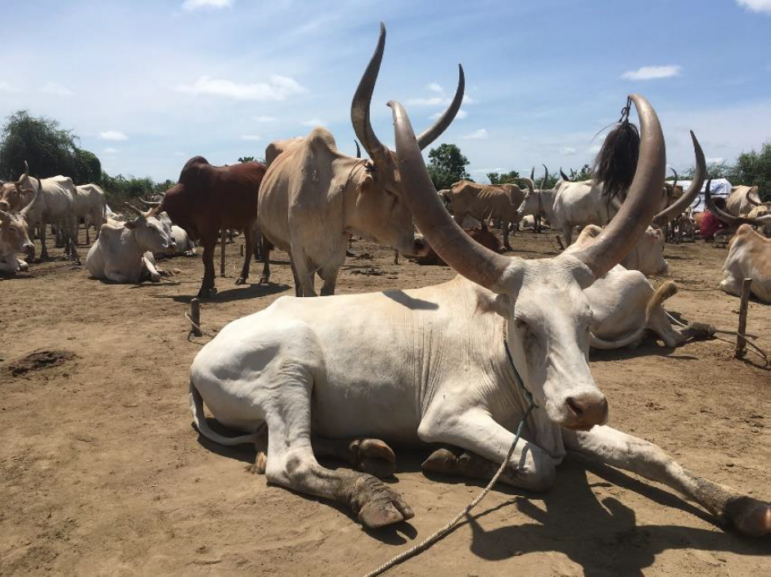Increasing the Safety and Security of Civilians in Bentiu Cattle Camps

In Nuer culture, cattle serve as a source of wealth, livelihood, dowries for marriage, and compensation if killing occurs within the Nuer communities. Sadly, cattle-related conflict is also one of the root causes of violence in Unity State and across the country, resulting in countless deaths and injuries each year. During the rainy season, cattle keepers move their herds away from flood-affected areas and closer to the principal towns of Bentiu and Rubkona. Migrated cattle keepers create temporary camps during the seasonal period where they often live with little humanitarian engagement. Considering the lack of humanitarian engagement and the propensity for violence as a result of cattle-related conflict, NP established and strengthened relations with the community in these temporary cattle camps.
Recognizing the high prevalence of child labor in these cattle camps, the team began engagement with the cattle-keeping community through child protection awareness. The team also conducted patrols to identify other areas of concern and promote NP’s presence in the area, as well as community meetings that enabled community members to share their concerns directly with NP. One of the main concerns raised by cattle keepers during community engagement was the significant death of their cattle as a result of infections and sickness. Despite reporting this to humanitarian partners, no one responded to their calls for help.
Given that cattle keepers are dependent on their animal products that they sell for income and survival and that cattle raids could potentially increase with the death of cattle, NP decided to advocate on behalf of the cattle keepers to humanitarian partners and other animal services provider agencies for cattle vaccination in Bentiu and Rubkona towns. As a result of advocacy to Veterinary Sans Frontières (VSF), the VSF team visited the cattle camp for verification, which resulted in the vaccination of 5,231 cows.
During the team’s activities at the cattle camp, the cattle keepers (owners) expressed their appreciation and thanked NP for advocating on their behalf to save the lives and increase the productivity of their cattle. One of the residents stated that:
“We are very pleased with you because you saved our lives and the lives of our children, which could have been in jeopardy if we lost our cattle, the main source of livelihood.”
Besides advocacy, NP also identified pertinent protection concerns affecting those in the cattle camp, especially children. The protection concerns identified included the wide proliferation of Small Arms and Light Weapons (SALW), including use by children, as well as child labor. In response, NP conducted trainings in child protection and SALW for both elders and children. In the engagements with the elders, NP informed them of the detrimental impacts of having children carry and be in the presence of SALWs and attempted to shift the responsibility of caring for cattle to adults.
Since NP’s engagement, awareness-raising on SALW has influenced the decision for children not to carry weapons as they had before. The children are no longer taking care of the cattle, and the elders have prepared a place where they keep their weapons away from children for safety and security reasons. NP hopes to engage with other remote communities to further promote safety and security through NP’s Unarmed Civilian Protection (UCP) approach.
* * *
This project was made possible through funding from USAID.
